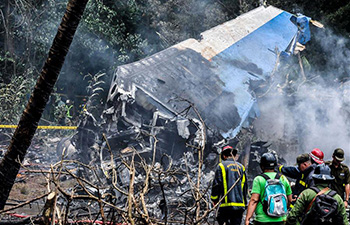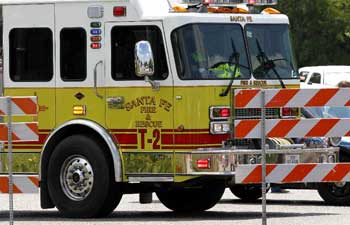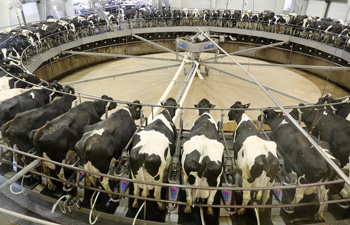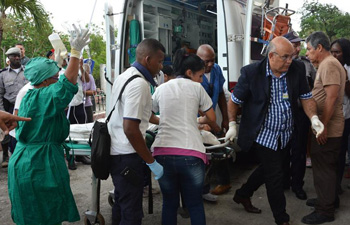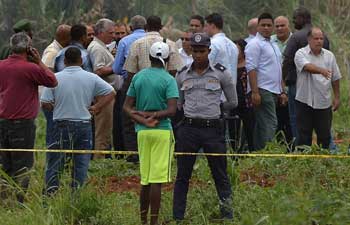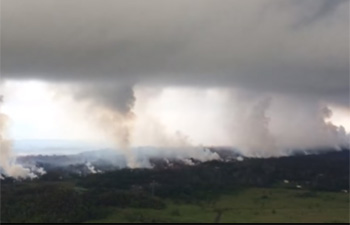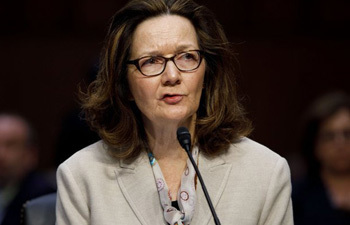By Matthew Rusling
WASHINGTON, May 18 (Xinhua) -- The easy availability of guns, together with the Internet and a growing sense of social isolation, could turn some people into ticking time bombs.
With yet another mass school shooting on Friday, these three factors, taken together, warrant a closer look, experts said.
Friday saw the latest U.S. mass shooting, when an armed student went on a killing spree at a high school in the U.S. state of Texas, with a reported death toll of 10. This is not long after the previous one in February in the U.S. state of Florida, which left 17 dead.
Many experts point to the ready availability of firearms as the main reason there's been a stark uptick in U.S. mass shootings over the past decade. But other experts say it's not quite that simple.
Indeed, firearms have always been relatively easy to obtain in the United States, but the past decade has seen four of the deadliest shootings in U.S. history.
In 2007, a student at Virginia Tech killed 32 people; in 2012, a deranged gunman claimed 28 lives in the Sandy Hook elementary school massacre, including 20 children; in 2016, a gunman killed 49 people at a gay nightclub in Orlando. And October's Las Vegas shooting - in which nearly 60 people died and 500 were wounded -- dwarfed all three of these incidents in terms of the death toll.
Aside from guns, there are two additional factors that experts say are worth noting as possible causes for a rise in mass shootings in recent years.
Firstly, there's an increased level of social isolation in the country.
Many believe this is because people, especially young people, are spending more time than ever on social media, the Internet and smart phones. This deprives them of the human interaction that psychologists and sociologists say all people need to stay mentally healthy. Too much isolation can result in a mentally unstable person falling off the edge and committing acts of violence, goes the argument.
Recent studies have also found a major increase in depression among young people. Major U.S. insurance company Blue Cross Blue Shield, in a recent report, found a 33-percent increase in diagnoses of depression from 2013 to 2016.
Secondly, the Internet provides the promise of instant fame for someone who commits a violent act.
In the Internet age, one can instantly become famous around the world by committing a mass murder. Within seconds after police release the name of a mass murderer, the Internet goes into overdrive, broadcasting the killer's name all over the world. For killers seeking revenge for a perceived sense that society has wronged them, publicized killings are the ultimate revenge, experts say.
Joseph A. Toomey, assistant professor and director of the forensic psychology concentration at William James College, told Xinhua that one common pattern among mass shooters is a failure to cope with loss and a response to those types of things that fits the pattern of isolation.
Often such individuals are the people "who have felt bullied or persecuted for a good deal of their life," Toomey said, referring to mass murderers. "And then when these losses occur they don't deal with them well. They become very angry, they ruminate over the losses, they externalize blame for the losses. They put the blame on those around them, or circumstances within society."
"And so they kind of lash out at a response to that," Toomey said.
Christopher Galdieri, assistant professor at Saint Anselm College, told Xinhua: "If nothing else, it seems that mass shootings have become more common, and each one results in a flood of news coverage in a way that you didn't see, say, 25 years ago, when there was one cable news channel and few people used the Internet."
"They (perpetrators) know their name and picture will go around the world and that may encourage them to engage in actions that previously would have been far more limited in scope," Brookings Institution Senior Fellow Darrell West told Xinhua.
"This is the reason some news outlets are starting to stop mentioning the names of perpetrators in order to deny them visibility," he said.
West also believes that frequent mass shootings are a result of the ready availability of firearms in the country.
"With this incident coming after so many similar incidents, we see again the tragic consequences of malevolent persons with easy access to firearms," Dan Mahaffee, senior vice president and director of policy at the Center for the Study of the Presidency and Congress, told Xinhua.
Mahaffee also urged actions to improve the situation.
"No incident has a one-size-fits-all solution from gun control, but a major element of it will have to be improved background checks; licensing or restrictions on more powerful, high capacity weapons; improved mental health screening and the ability to remove guns from those with mental issues; and better security and hardening of schools," Mahaffee said.
However, experts said that despite the uptick in mass violence, Washington is unlikely to take any action.







